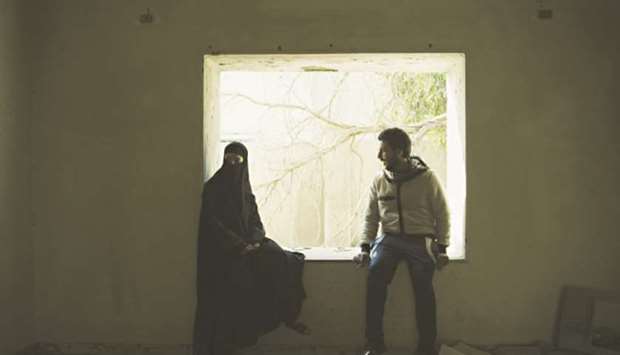Making cinema more accessible than ever before, the first hybrid edition of the 8th Ajyal Film Festival, presented by Doha Film Institute (DFI), brings back its popular inclusive screening experience to an online audience this year.
Presented in partnership with the Translation and Interpreting Institute (TII) of the College of Humanities and Social Sciences at Hamad bin Khalifa University, Ajyal’s inclusive screening programme features a special selection of four compelling works by local filmmakers.
“By adapting cinema to the needs of audiences of all abilities, we hope to remove stigma, transcend barriers and make the film-going experience truly accessible to all. The first programme of its kind in the region, Ajyal’s inclusive experience reflects the Festival’s power to unite people in a space of creative understanding and celebrate that we are more alike than different,” Festival director and DFI CEO Fatma Hassan Alremaihi said.
“We are proud to continue our collaboration with TII to deliver this specially curated programme featuring captivating works by our local filmmakers. Fittingly, Ajyal’s move to the virtual sphere this year will make film even more accessible for audiences – an extension of our ongoing commitment to inclusivity and integration that promotes equal access to the transformative experience of cinema,” she added.
This year’s inclusive screening features a compelling programme of shorts made in Qatar with the support of DFI: Ya Hoota (Qatar/2019) by Abdulaziz Yousif and Latifa al-Darwish follows a curious little girl and her cousin who attempt to save the moon from a gigantic whale - with the help of some extraordinary characters; set in a dystopian dollhouse Beit Byoot (Jordan, Qatar/2019) by Mayar Hamdan is about little Jameela who is seeking the acceptance of two mean girls. But when she meets Yasmine, she must ultimately choose between being odd and fitting in; in Elevate (Qatar/2017) by Hamida Issa about Latifa, a vain woman, and her long-suffering maid get trapped in an elevator and Latifa finds herself confronting her own egotism; and The Black Veil (Qatar/2019) by A.J. Al-Thani is the story of a woman who puts her life at risk to find her freedom.
Visually impaired audiences will be able to experience the film through enhanced sound, with audio description of certain visual elements capturing voice, music or sound effects.
Viewers who are deaf, hard-of-hearing or have difficulty understanding speech will benefit from enriched subtitles in Arabic and English and sign-language interpretation. This programme is free to the public.
“By adapting cinema to the needs of audiences of all abilities, we hope to remove stigma, transcend barriers and make the film-going experience truly accessible to all. The first programme of its kind in the region, Ajyal’s inclusive experience reflects the Festival’s power to unite people in a space of creative understanding and celebrate that we are more alike than different,” Festival director and DFI CEO Fatma Hassan Alremaihi said.
“We are proud to continue our collaboration with TII to deliver this specially curated programme featuring captivating works by our local filmmakers. Fittingly, Ajyal’s move to the virtual sphere this year will make film even more accessible for audiences – an extension of our ongoing commitment to inclusivity and integration that promotes equal access to the transformative experience of cinema,” she added.
This year’s inclusive screening features a compelling programme of shorts made in Qatar with the support of DFI: Ya Hoota (Qatar/2019) by Abdulaziz Yousif and Latifa al-Darwish follows a curious little girl and her cousin who attempt to save the moon from a gigantic whale - with the help of some extraordinary characters; set in a dystopian dollhouse Beit Byoot (Jordan, Qatar/2019) by Mayar Hamdan is about little Jameela who is seeking the acceptance of two mean girls. But when she meets Yasmine, she must ultimately choose between being odd and fitting in; in Elevate (Qatar/2017) by Hamida Issa about Latifa, a vain woman, and her long-suffering maid get trapped in an elevator and Latifa finds herself confronting her own egotism; and The Black Veil (Qatar/2019) by A.J. Al-Thani is the story of a woman who puts her life at risk to find her freedom.
Visually impaired audiences will be able to experience the film through enhanced sound, with audio description of certain visual elements capturing voice, music or sound effects.
Viewers who are deaf, hard-of-hearing or have difficulty understanding speech will benefit from enriched subtitles in Arabic and English and sign-language interpretation. This programme is free to the public.

